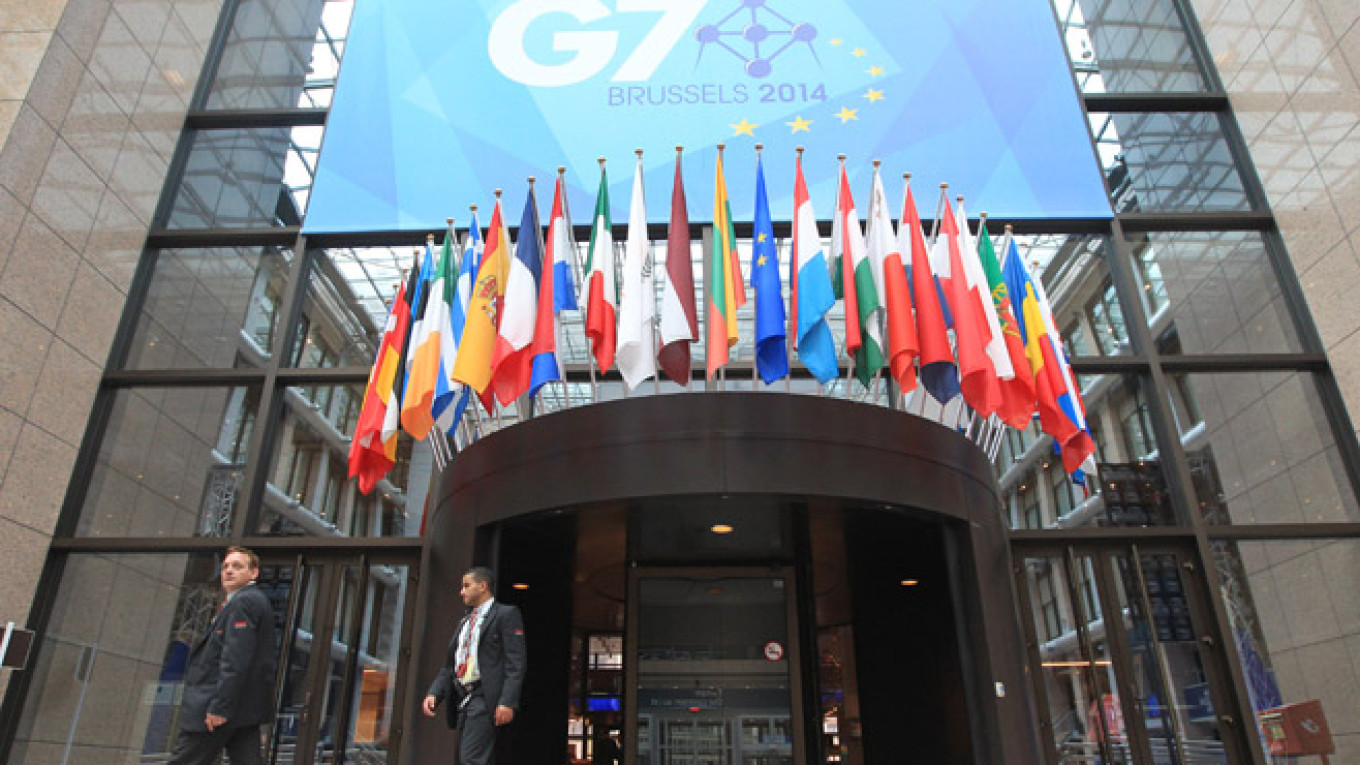As diplomatic tensions reached a boiling point over Russia's annexation of Crimea, President Vladimir Putin was rejected in March as host of the Group of Eight summit in Sochi, while his country was excluded altogether from the group of leading industrialized nations.
But Putin's arrival in Normandy on Thursday to take part in a World War II commemoration will serve as a bold reminder of the clout he continues to carry in spite of recent attempts at isolation.? ?
The celebration will mark the Putin's first meeting with western leaders since the political tug-of-war emanating from the Ukraine conflict chilled East-West relations to a level unseen since the end of the Cold War.
Prior to the visit, Putin voiced a disinterest in any further Ukraine annexations, and a readiness for dialogue with U.S. President Barack Obama. "It will be his choice. I am ready," Putin told French television network Europe One in an interview broadcast Wednesday, adding that "it is not a secret that the most aggressive and severe policy is the one of the U.S."
No formal meeting has been scheduled between Putin and Obama, but they are both set to attend a luncheon following the commemoration Friday.
"I am sure I will see him," Obama told reporters at a news conference Tuesday in Warsaw. "He is going to be there."
Following Putin's apparent effort to de-escalate the situation by calling on some Russian troops to retreat from the Ukrainian border and tacitly endorsing Ukraine's presidential election in late May, Obama seemed to have softened his rhetoric with regard to Russia, creating the possibility of an improved bilateral dynamics.
"If in fact we can see some responsible behavior by the Russians over next several months, then I think it is possible for us to try to rebuild some of the trust that has been shattered during this past year," he said at the news conference.
In a show of support, Obama met with Ukraine's President-elect Petro Poroshenko on Wednesday, offering him support in the financial and security sectors. The White House said in a statement that Obama had approved an additional aid package for Ukraine, consisting of $23 million, including $5 million for "body armor, night-vision googles and additional communications equipment."
As with Obama, Putin has not scheduled a separate meeting with Poroshenko, but they will both be present at some of the same events.
"Everybody will wait for Putin's meeting with Poroshenko, which can be a sign that Russia recognizes the new Ukrainian president as legitimate," said Fyodor Lukyanov, head of Russia's Council on Foreign and Defense Policy, a think tank with close ties to the Foreign Ministry.
"But it will be tough to manipulate Putin to do what he does not want to do. He believes he is right in this situation and thus can make a strong impression on the other leaders that have often demonstrated inferior competence in world affairs. Everybody will look at him, so he will be at the center," he said in a telephone interview.
In the wake of the Normandy meeting, western leaders have admitted that despite increasing isolation, Putin still holds the keys to the Ukraine crisis.
German Chancellor Angela Merkel stressed the imperative that Putin must "use his influence to get the separatist to refrain from violence and intimidation, hand over their weapons and stop the occupations" in a speech Wednesday.
In case Russia fails to cooperate, it may face further sanctions, Merkel said, but the draft communique of the Group of Seven summit taking place in Brussels this week does not mention any new sanctions, The Financial Times reported.
In the same vein, the British Foreign Office accused Russia of sparking unrest in eastern Ukraine, but also asked it to help alleviate the situation there.
"We call upon Russia to use its influence to put an end to the instability. Russia has refused to condemn the illegal actions of armed groups that look to it for direction," the British Foreign Office said in a statement on Wednesday.
Putin is scheduled to participate in bilateral meetings with Merkel, British Prime Minister David Cameron and French President Francois Hollande on Thursday and Friday.
Russia's annexation of Crimea initially came as a shock to European leaders, but at this point they are beginning to accept it as the new status quo, since relations with Russia remain vital, said Vladimir Evseev, director of the Center of for Social and Political Studies.
"Europe and the U.S. were expecting that Russia would engage in a very tough confrontation with them, while Putin — despite all the Hitler comparisons — waited for the passions to subside and acted on the basis of pragmatic calculations, rather than emotions," he said.
"Crimea is no longer an important factor in negotiations. What is important is whether Ukraine preserves itself in one piece. This is where Putin's clout is crucial," he added.
See also:
Obama Pledges U.S. Aid After Meeting With Ukraine's Poroshenko
Contact the author at i.nechepurenko@imedia.ru
A Message from The Moscow Times:
Dear readers,
We are facing unprecedented challenges. Russia's Prosecutor General's Office has designated The Moscow Times as an "undesirable" organization, criminalizing our work and putting our staff at risk of prosecution. This follows our earlier unjust labeling as a "foreign agent."
These actions are direct attempts to silence independent journalism in Russia. The authorities claim our work "discredits the decisions of the Russian leadership." We see things differently: we strive to provide accurate, unbiased reporting on Russia.
We, the journalists of The Moscow Times, refuse to be silenced. But to continue our work, we need your help.
Your support, no matter how small, makes a world of difference. If you can, please support us monthly starting from just $2. It's quick to set up, and every contribution makes a significant impact.
By supporting The Moscow Times, you're defending open, independent journalism in the face of repression. Thank you for standing with us.
Remind me later.


